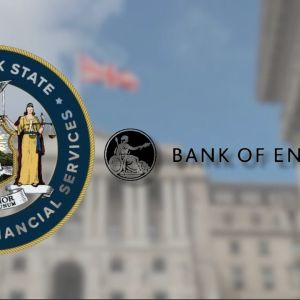Adrienne Harris, Superintendent of the New York Department of Financial Services (NYDFS), has unveiled a new exchange program, Transatlantic Regulatory Exchange (“TRE”). It aims to give the regulator insight into how foreign agencies address challenges related to emerging payments and digital assets. The release said that the first TRE secondment will begin next month, with DFS and the Bank of England exchanging senior staff with expertise in emerging payments and digital assets. We’re thrilled to partner with the Bank of England in this kind of exchange for the very first time, working together to strengthen regulatory frameworks, protect consumers and support innovation. Adrienne Harris Harris believes connecting the two global financial capitals of New York and London is critical for regulatory harmonization in a world where financial services are not defined by geography. The Transatlantic Regulatory Exchange will enhance crypto regulation expertise The TRE program will start in February and last six months, with participants visiting the Bank of England for more learning. According to Harris, those undertaking the program are expected to return to the US well-equipped with adequate knowledge of regulating financial services, including cryptocurrency. Harris, who is in charge of the New York regulator, was earlier working at the White House under Obama’s presidency. According to Partnership for New York City President and CEO Kathy Wylde, the Transatlantic Regulatory Exchange is a program that underscores the importance of New York and London as twin engines of the global finance system. This initiative reinforces DFS’s role as a preeminent global regulator, driving responsible innovation and economic opportunity in the city and state while protecting the global financial system. The United Kingdom and the United States pursue regulatory initiatives The NYDFS is responsible for crypto regulations in New York, where most crypto firms have been taking refuge due to its welcoming business and regulatory environment. The financial regulator oversaw the execution of the BitLicensing scheme in 2015 when it approved projects such as Ripple Labs’ RLUSD stablecoin in December. Although the end game is unclear, the Bank of England has had its challenges handling cryptocurrency regulations. The central bank’s regulatory arm, the Prudential Regulation Authority, is expected to monitor firms’ cryptocurrency exposure and propose UK digital assets rules. Land a High-Paying Web3 Job in 90 Days: The Ultimate Roadmap

















